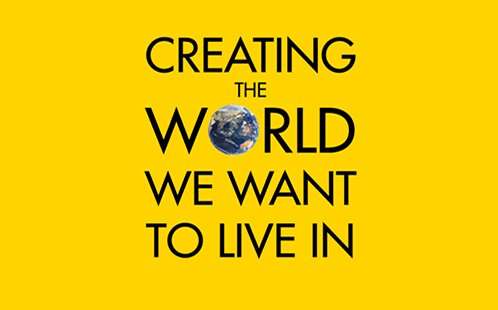
Adjunct Associate Professor Sue Roffey at Western Sydney University has co-authored a visionary new book titled “Creating The World We Want To Live In: How Positive Psychology Can Build a Brighter Future,” that imagines a future based on the science of wellbeing. It is a book to promote both hope and action.
Drawing on leading research in positive psychology, the seven authors explore what it might take to foster a brighter future through the stages of life from childhood to aging; foundations of flourishing such as relationships and health and finally in the wider world, including chapters on politics and the environment.
Lead author, Sue Roffey, adjunct associate professor in the School of Education has written several key chapters and portrays the need for fresh, positive approaches in a world buffeted by COVID-19, climate change, entrenched racism and sexism, rising inequality and poor mental health.
“For many people, the speed of life, overload at work and financial pressures were leaving little time for all that makes life more joyful, meaningful, and worth living,” said Adjunct Associate Professor Roffey.
“As a group immersed in positive psychology, we saw that the science of wellbeing might provide a new paradigm to help shape a different future—not just for individuals but the society in which we live.”
The book’s 15 chapters take positive case studies and examples where people have been able to effect changes, ranging from former Prime Minister Kevin Rudd’s Apology to the Stolen Generations, to the Black Lives Matter movement, underpinned by the principles of belonging, compassion and a sense of meaning.
The book weaves in reflective thought-provoking questions to draw the reader towards what they might do in their own lives and what is needed from families, communities and governments.
“The pandemic revealed the many flaws in our systems and how we have been living. There is now the opportunity to press a huge reset button,” said Adjunct Associate Professor Roffey.
“The last year has given rise to wonderful examples of human beings at their best, and how life can be when we step off the treadmill and focus on what really matters.”
Source: Read Full Article
